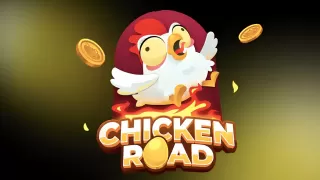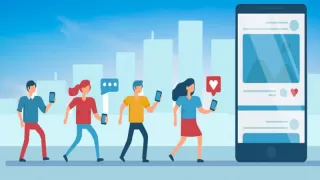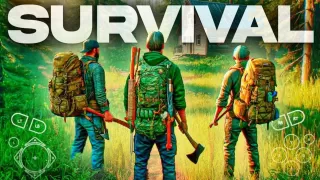How Online Gaming Communities Are Shaping Internet Culture

The internet can be a beautiful place filled with joy and togetherness. An example of that can be the world of online gaming.
Online gaming can bring people from different walks of life together, irrespective of language, nationality or age. It has opened up a platform for people to express themselves and make friends with people who share their tastes and interests.
In this blog, we will delve deep into how online gaming can develop communities and the cultural influence that it fosters.
How online gaming communities evolved over time
From giving your friend a second controller to forming a LAN party to seamless co-op experiences, multiplayer games have gone through a major evolution over the years.
It can be said that online gaming evolved from LAN parties, driven by technological advancements and the growth of internet technology, to allow global connections and even massively multiplayer online experiences.
The role of forums in building gaming communities
Different online forums exist where gamers can interact with each other, giving rise to a sense of community. They offer a space to connect, discuss experiences, and strategies, which can help foster a sense of belonging.
Discord, Twitch, Reddit or YouTube can be called forums where gamers can accumulate, engage with one another and develop a specific niche, based on a game or a genre. These platforms are essentially online gathering places, the forefront of community engagement.
The cultural power of gaming jargon: A shared language
Gamers might bring people of different languages and nationalities together. How do you connect two people if they do not speak the same language?
It can be done with a common language that is made up of jargon and memes. The common gaming slangs and jargons include terms such as GG, Git Gud, AFK, buff, nerf, OP, noob, boss, aggro, grind and so on.
If you are not a gamer, you will not understand what any of these terms mean. However, as a gamer, then all of these terms are quite clear to you, irrespective of the language you speak.
If you think of the community you engage in playing a game of rummy online with, you will realize that there are certain shared terms you all speak. Even though every member of the community does not speak the same language.
How memes add to the shared language
Memes are a source of community engagement. It might sound like a joke. But, it is a very appropriate assessment to make.
Shared memes can instill a sense of belonging for the members of a gaming community, be it a game or a genre. Even if you played the specific game at a different point in time than the sharer of the meme, both of you will still share the context that makes the meme meaningful.
Thus, memes not only facilitate a sense of community but also create a shared attitude towards a game.
How game language has infiltrated the mainstream vocabulary
Gaming terms have infiltrated the daily vocabulary of regular people. You can often see people describe themselves as a noob in case they are new to something and many people describe taking a break from working on a computer for a moment as going AFK.
People may also use the term “GG” as a congratulatory statement.
Influencers, Steamers and the Gaming Community
The role of community in online gaming cannot be better explained than through the advent of streamer culture.
Game streamers are dependent on creating a sense of community among gamers to develop a niche suited to their audience. The strength of the community created through gamers coming together on online forums such as YouTube or Twitch is a testament to the success that streamers have achieved, becoming household celebrities.
The role of gaming personalities in shaping modern culture
Notable personalities in gaming have had a role in shaping modern culture. Gaming in general has had a significant impact on language, fashion, social interaction and even on technology.
Having discussed how gaming jargon has seeped into the modern language, gaming has also inspired fashion aesthetics, popularizing hoodies, sneakers and so on.
Social media has also taken a page out of the book of online gaming, as virtual realities are becoming relevant. Metaverse, a planned virtual world, has been considered as an online gathering hub by the creators of Facebook.
The role of gaming in modern marketing
The gaming community has become significant to marketing. As major gaming influencers are partnering up with retail organizations, many mainstream celebrities have also participated in marketing games.
You have probably experienced a notable celebrity advertising a rummy online game to convince you to download a rummy app. An example of the modern mainstream renown of online games.
The Dark Side of Gaming Communities
While gaming can create a sense of community, camaraderie, and belonging, there is a flip side to it as well.
Gatekeeping, trolling and exclusion are some of the major challenges that gamers have faced when attempting to be the part of a larger community.
Gatekeeping and harassment
Gatekeepers often attempt to exclude newer entrants to a game series from touching what they deem sacred. Gatekeeping can be labelled as an unhealthy obsession with a game or a community that harms the feeling of belongingness that online games can provide.
This can result in harassment, often targeted harassment, such as the tribal mentality of gaming being something to be enjoyed by “boys”. This often leads to female gamers being harassed online.
Suppose you want to learn rummy, so you download rummy app, only to be told by an experienced player that you cannot play the game. This experience is referred to as gatekeeping.
How gaming can promote inclusivity
Gaming platforms and developers have acknowledged the negative aspects persisting in gaming communities and are making active attempts to promote inclusivity. Twitch, as a platform, has been active in denouncing any amount of toxicity among the communities.
Twitch has a comprehensive set of community guidelines and Twitch actively bans users who treat others with hostility. Even major gaming studios such as CD Projekt Red and BioWare promote inclusivity on social media platforms, as a step to manage toxicity.
Conclusion
Digital spaces are becoming more relevant for social gatherings, and gaming is becoming more than a niche hobby. Thus, the capability of online gaming to foster communities has been a significant aspect to note. They are more than just entertainment now, but a gathering hub for people across countries and cultures.
You can do your part in promoting this by viewing gaming as a cultural phenomenon. Also, if you treat your fellow gamers with kindness, you can contribute to the positivity promoted by games.
Disclaimer
The content provided on this website is for informational and educational purposes only. We do not promote, endorse, or encourage any form of illegal betting or gambling. Readers are advised to check the legal status of betting and gambling in their respective jurisdictions before engaging in any activities. It may be legal in certain regions, but it is the your responsibility to ensure compliance with local laws. We are not liable for any legal or financial consequences arising from the use of this information.












Give Your Feedback